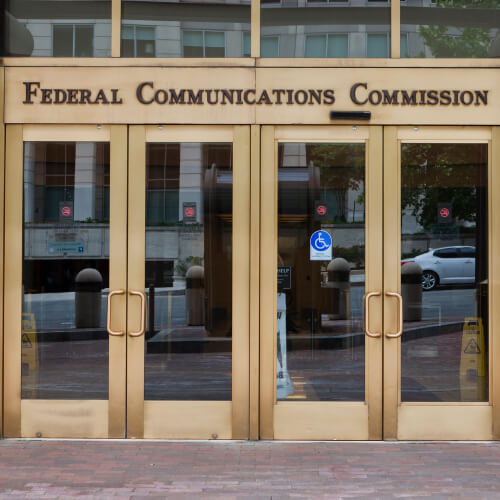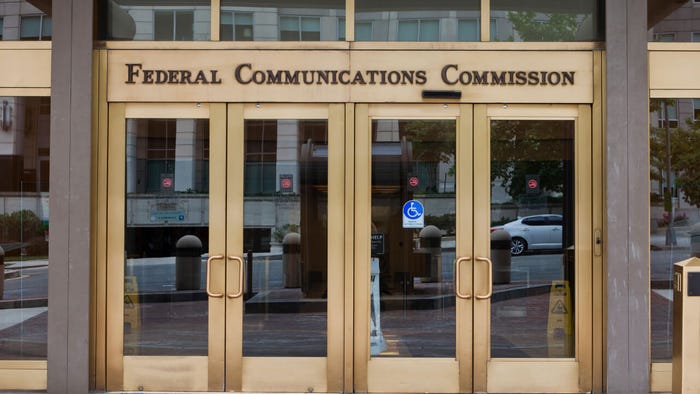Biden FCC nominee Anna Gomez gets initial industry support
Industry reactions to Biden's new nominee for FCC Commissioner Anna Gomez were positive, but a swift confirmation process is still unlikely.

President Biden on Monday nominated attorney Anna Gomez to serve as fifth FCC Commissioner, nearly three months after Gigi Sohn withdrew from consideration. Initial industry reactions suggest Gomez has support from some of the same forces that reportedly helped derail Biden's initial pick.
Gomez – currently senior advisor for the State Department's International Information and Communications Policy in the Bureau of Cyberspace and Digital Policy – has prior experience at the FCC, where she served for over 12 years in multiple roles. She also served as deputy administrator of the NTIA from 2009 to 2013. In the private sector, Gomez was VP of government affairs at Sprint Nextel.
"I congratulate Anna Gomez on her nomination to serve as FCC Commissioner. She brings with her a wealth of telecommunications experience, a substantial record of public service, and a history of working to ensure the U.S. stays on the cutting edge of keeping us all connected. I wish her all the best during the confirmation process," said FCC Chairwoman Jessica Rosenworcel in a statement on Monday.
In a post on LinkedIn, Gomez said: "I thank President Biden for this honor. I am humbled and grateful. If confirmed, I look forward to working with Chairwoman Rosenworcel and my fellow Commissioners to bring the benefits of modern communications to all."
Following the news of Biden's intent to nominate Gomez, industry groups and telecommunications companies issued statements of approval, alongside public advocacy groups encouraging her swift confirmation to restore the full FCC, which has been tied with two Democrats and two Republicans since January 2021.
Figure 1:  (Source: B Christopher/Alamy Stock Photo)
(Source: B Christopher/Alamy Stock Photo)
"Anna Gomez's deep knowledge across the breadth of issues before the FCC makes her exceptionally qualified to be a Commissioner. In addition to her prior service at the FCC, she also has extensive experience in both the executive and legislative branches of government – from NTIA and the Senate, and most recently leading the US delegation to the ITU World radio conference. From the digital broadcast transition to spectrum issues, Ms. Gomez has expertise across the board," said Comcast Chief Legal Officer Tom Reid in a statement on Monday.
Gomez also received support from the Wireless Internet Service Providers Association (WISPA), which issued a statement congratulating her as well as current Commissioners Geoffrey Starks and Brendan Carr, a Democrat and Republican, respectively, who have been renominated to the FCC.
"If confirmed, each would bring years of experience and ability to the positions at the Commission, helping the agency keep abreast of communications technology and the marketplace in service of the American communications consumer. Importantly, it would bring the Commission to full strength, enabling it to move more confidently forward – especially in the area of spectrum policy, which, now more than ever, demands a clear, balanced and functioning pipeline to meet the demand of America's mobile and fixed wireless consumer," said WISPA in a press release.
Meredith Attwell Baker, president and CEO of CTIA, said of Gomez's nomination that "she has amassed an impressive track record in public service and brings the knowledge and expertise needed to address the critical challenges we face in closing the digital divide and securing America's 5G leadership."
Gomez also received a round of support from consumer advocacy groups like Free Press, which called out the "deep-pocketed phone, cable and broadcast companies" that lobbied Sohn's nomination, allowing the FCC to remain deadlocked.
"In addition to her corporate experience — which has often entailed working for competitive carriers instead of incumbents — Gomez has a long track record of public service, including high-ranking positions at the FCC and Commerce Department. She is eminently qualified for this role at the FCC," said Jessica J. González, co-CEO of Free Press. "She would also be the first Latinx FCC commissioner in more than two decades, and we celebrate the White House's nomination of experts from diverse backgrounds for these important roles."
Now what?
While having a new nominee puts the US a step closer to having a fully functional FCC, it's still expected to take months before Gomez gets a confirmation hearing, no less a vote.
In a note for New Street Research on Monday (registration required), analyst Blair Levin said it was "unlikely there will be a hearing before the fall," pushing a potential Democratic majority at the FCC until late 2023.
"While we expect a Democratic majority to quickly move forward with a process to adopt an order like the 2015 Open Internet Order (classifying ISPs as Title II carriers), it will take a while and may not be done before the 2024 election," added Levin.
Apart from a potential vote on net neutrality and Title II, another broadband-related issue requiring a Commission vote is adopting rules on preventing digital discrimination. That vote is technically mandated to happen, according to the Infrastructure Investment and Jobs Act (IIJA), by this November. It's unclear if Gomez will be confirmed by then.
Further, as Levin added in a conversation with Light Reading, another crucial area where Gomez's confirmation could make a difference is working on reforming the Universal Service Fund (USF), which supports high-cost broadband programs and Lifeline benefits.
While the FCC released a report last year, as mandated by the IIJA, looking into ways to reform the USF – including how it should be paid for and how much it should distribute – no further action has been taken on a proceeding at the Commission. Meanwhile, there is widespread concern about the contribution base for the USF, which has also faced court challenges this year.
The future of universal service is up for debate at the same time that the Affordable Connectivity Program (ACP) is soon projected to run out of funding with no current backup plan. Some in the industry have suggested that ACP could eventually sit under the USF as a potential replacement for the Lifeline program, but action from Congress and the FCC to rescue both programs is necessary.
"There is a need for a significant amount of analysis of what Universal Service should look like post the BEAD program, post capital projects... It's obviously going to be very dramatically restructured," said Levin. "I think Anna could be enormously helpful in that."
Related posts:
Biden nominates Anna Gomez to FCC (press release)
— Nicole Ferraro, editor, Light Reading, and host of "The Divide" on the Light Reading Podcast.
About the Author(s)
You May Also Like


_International_Software_Products.jpeg?width=300&auto=webp&quality=80&disable=upscale)








